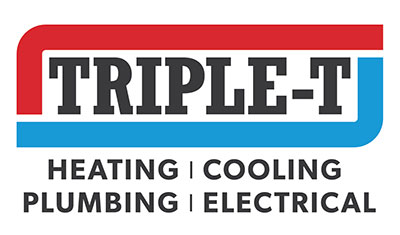Do Water Softeners Increase the Water Bill?
Being conscious of your family’s water usage helps lower your utility bills and benefits the environment. With this in mind, you may wonder—do water softeners increase the water bill?
The short answer is yes—most water softener systems must backflush the tank to regenerate the water-softening resin. While this increases your water bill slightly, a water softener can save you money in several ways, more than making up for this higher utility cost.
What is Hard Water?
As rainwater flows across the ground and seeps into the soil, it picks up minerals like calcium and magnesium. Water with high mineral content is called hard water. Drinking water high in calcium and magnesium doesn’t harm your health, so water treatment plants don’t focus on removing them.
However, dissolved minerals stay behind when hard water evaporates, leaving a chalky buildup on your plumbing fixtures, appliances, glassware, clothing, and even your skin and hair. Nearly 85 percent of the US is considered a hard water area, including all of Utah. That’s why more and more homeowners are choosing to install water softeners.
What is a Water Softener?
This whole-house water treatment system removes the minerals responsible for hard water through a process called ion exchange. Calcium and magnesium ions are trapped by resin beads within the system, where they are exchanged for sodium and potassium ions.
As the resin beads become saturated with calcium and magnesium, the system backflushes itself with tap water. This regenerates the resin and allows the system to continue softening your water.
How Much Extra Water Does a Water Softener Use?
Depending on the type of water softener you install, it may consume anywhere from 25 to 65 gallons each time it regenerates. This 10-minute process occurs roughly once a week based on your family’s water usage. If you’re careful about your consumption, the water softener will go longer between regeneration cycles.
Be aware that on-demand and dual-tank water softeners tend to be more efficient than single-tank units. There are even some systems that don’t require backflushing. Compare your options with help from a plumber before deciding on the right water softener for you.
If you notice a sudden increase in your water bill after installing a water softener, the device may be malfunctioning. It could be regenerating more often than necessary or getting stuck in a regeneration loop. But your water softener is not the only thing that can raise your water bills. Other possible causes include:
- Dripping faucets
- Leaky toilets
- Broken pipes
- Poor hose connections
Keep an eye on your water bills, and if you notice an unexplained spike, contact a plumber. This professional can find the source of the problem and recommend an affordable repair.
How Water Softeners Save You Money
Perhaps you want to install a water softener but are concerned about using an extra 25 to 65 gallons per week. Put your mind at ease by considering the many ways this system can save you money each month:
- Protect your plumbing: As hard water flows through your pipes, minerals stick to the sides, leaving a scaly buildup that can eventually lower your water pressure. In areas with extremely high mineral content, scale buildup can irreversibly damage the plumbing, leading to costly and time-consuming repair work. A far more affordable option is to prevent this buildup with a water softener.
- Prolong the lifespan of plumbing fixtures and appliances: Hard water clogs your faucet aerators, backs up your dishwasher drain line, and causes a chalky film to form inside your washing machine. Still, the most at-risk appliance is your water heater. The damaging effects of calcium and magnesium are worse when the water is hot, giving these minerals the ability to rust through your water heater tank. Save your plumbing appliances and prevent property damage with a water softener.
- Lower your water heating bill: Mineral buildup inside your water heater acts as an insulator, preventing the gas burner or electric element from heating the water as efficiently. As a result, the appliance must work harder to provide hot water. A water softener can lower your energy bills by removing minerals from the water before it flows into the water heater.
- Save on soaps and detergents: The minerals in hard water make cleaning more difficult, requiring extra soap and detergent to produce a desirable lather. On the other hand, soft water dissolves these products effectively, allowing less soap to go further.
Do I Need a Water Softener?
Water may flow into Utah County from the beautiful Wasatch Mountains, but our area has some of the hardest water in the country. Consider this water hardness scale:
- Soft water: 0 to 60 parts per million (ppm)
- Moderately hard water: 61 to 120 ppm
- Hard water: 121 to 180 ppm
- Very hard water: 181 ppm or higher
The mineral content in Provo’s water is about 164 ppm. In Orem, the water hardness measures 240 ppm. And Spanish Fork tips the scale at 428 ppm.
Don’t just take our word for it. You know you have hard water if you notice any of the following:
- Hard water stains form on your dishes, glasses, and glass shower doors.
- You find soap scum on your faucets, sinks, and bathtubs shortly after cleaning them.
- New white clothes become dingy after just a few washes.
- Your water has an unpleasant taste.
- After showering, your skin feels itchy and irritated, and your hair is limp and lifeless.
Contact Triple T for Water Softener Services
If you’re ready to look into water softener installation, turn to Triple T Heating, Cooling & Plumbing for a job well done. We have nearly 50 years of experience installing cost-effective water softeners, with excellent customer service and 24-hour response times when you need us most. Call us today at 801-798-7711 or contact us online to schedule water softener installation or other plumbing services in Utah County.


